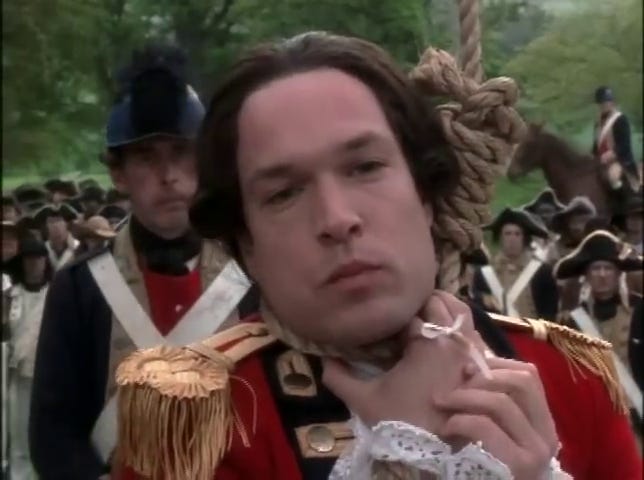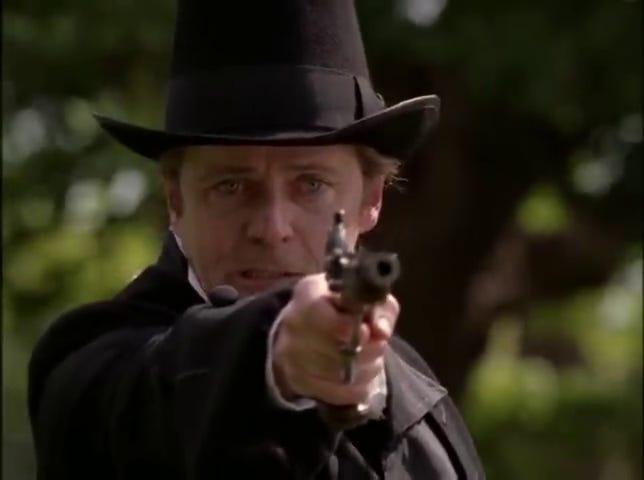Two Films Featuring George Washington: Valley Forge (1975) and Benedict Arnold: A Question of Honor (2003)
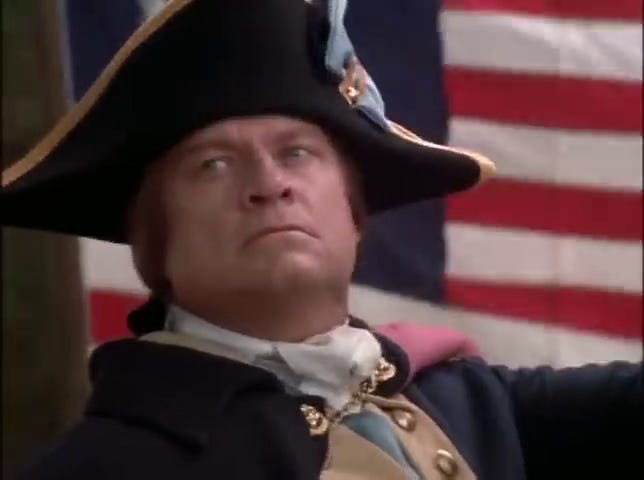
Valley Forge (1975)
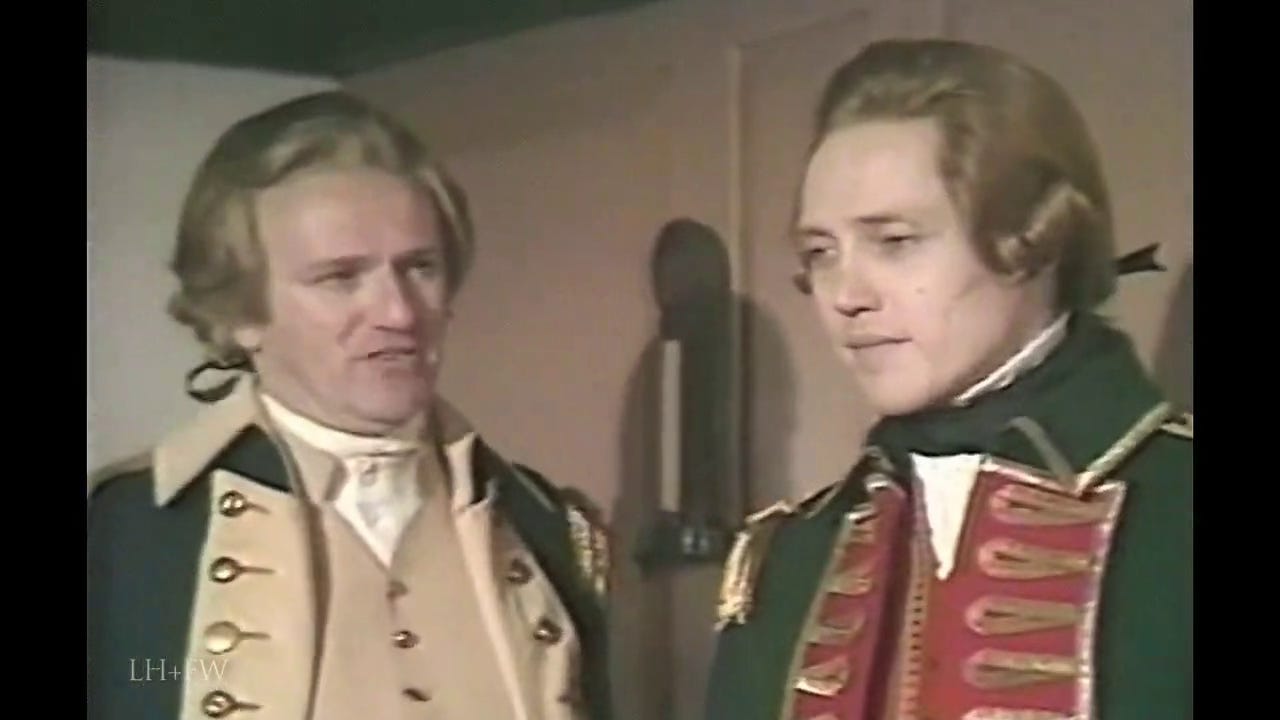
Many of early 20th-century American playwright Maxwell Anderson's works have been adapted to the screen, including World War I drama What Price Glory?, Florida noir Key Largo, and play-within-a-play Joan of Lorraine starring Ingrid Bergman. One of Anderson’s less successful plays was Valley Forge, which depicts a fictional incident during the bitter winter of 1777-78, and was received positively if not enthusiastically. Nevertheless, it has been adapted for radio, and multiple times for television, including one extant version from 1975, which removes one of the major subplots involving a former love interest of Washington.
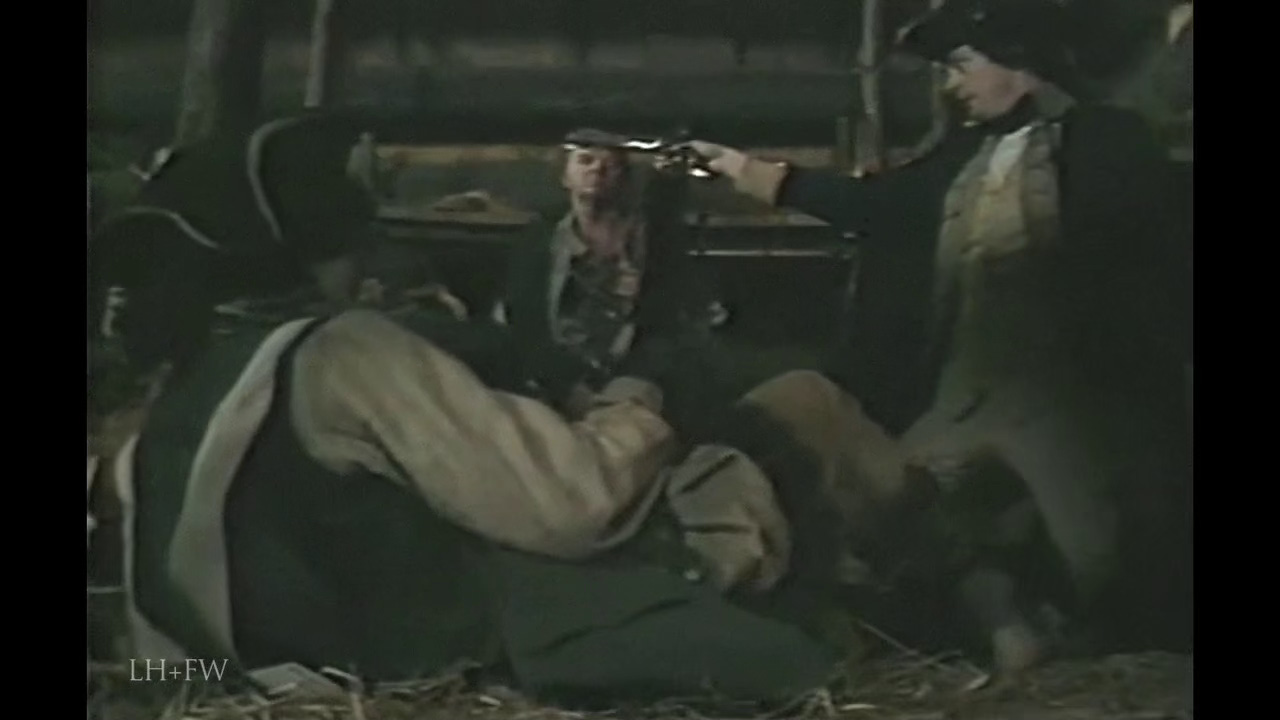
While a ragged group of soldiers lie around their log bunkhouse complaining about their situation, General George Washington (Richard Baseheart, who at 5’9” is a bit short for the role) is wining and dining a dapper Hessian officer (Christopher Walken, whose odd accent seems as appropriate here as anywhere else, and who would again play a Hessian in Tim Burton’s Sleepy Hollow) in an attempt to convince him to join their side. Meanwhile, the British have their own scheme: the Americans have not yet heard that France has signed the Treaty of Alliance, so General William Howe (Harry Andrews) sends Major John André (Simon Ward) to tell Washington that Howe wants to meet with him, figuring he can convince the Americans to give up the fight given their apparently hopeless situation. The bunkhouse soldiers go on a food raid behind enemy lines, against the orders of their officer Lieutenant Cutting (David Dukes) whom they tie up and whose pants they steal. By chance they wind up in the same barn where Washington is meeting with Howe, and the General decides he cannot abandon the cause these men have been suffering for. Even though the two productions are not connected except by general subject matter, the presence of David Dukes as a colonial soldier here before playing William Fairfax in George Washington (1984) reminded me of the double roles in Lin-Manuel Miranda’s Hamilton.
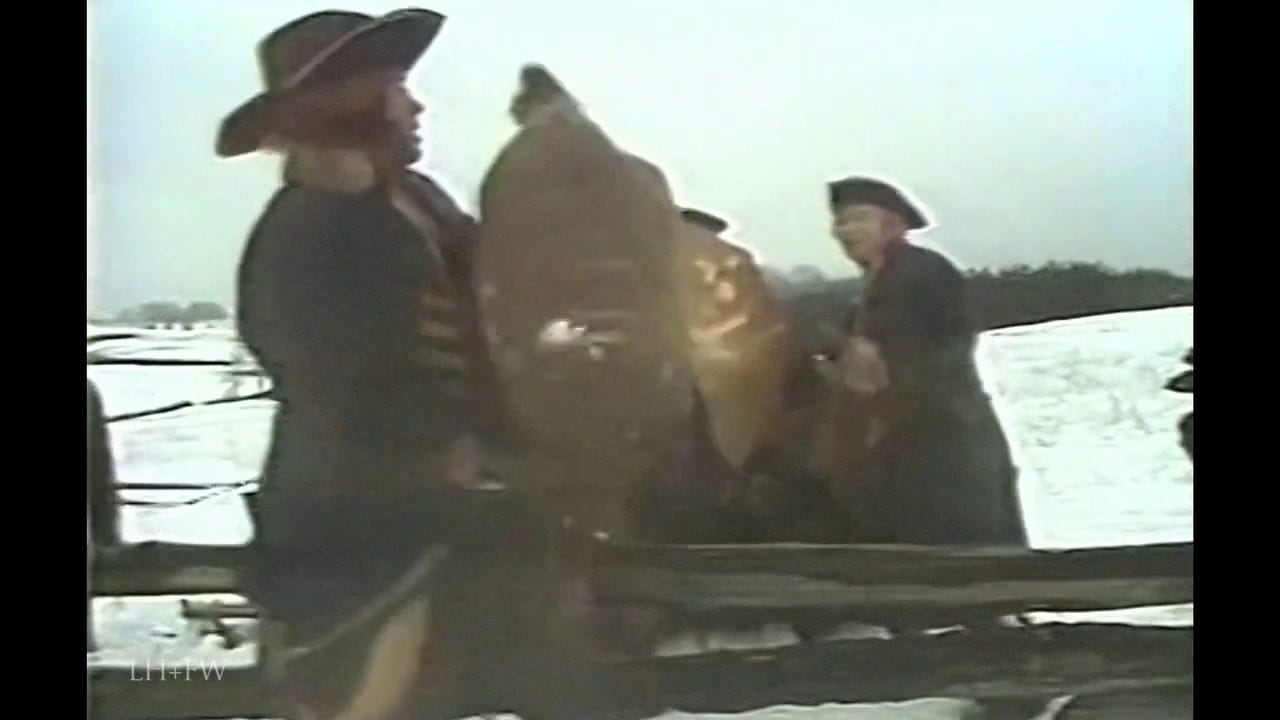
Benedict Arnold: A Question of Honor (2003)
Before his name was a byword for treason, Benedict Arnold was considered one of America’s greatest heroes, as he was helped win the Battles of Saratoga, in which he was wounded in the leg. Arnold’s motivations for his eventual betrayal of the revolutionary cause are explored in this television film. Although this movie obviously focuses more on Benedict Arnold (Aidan Quinn) himself, George Washington (played here by Kelsey Grammer, which is…interesting, and another double role if you’ve seen the Washington series) is also prominently featured. This film also recounts the relationship between loyalist Peggy Shippen (Flora Montgomery) and British Major John André (John Light), whom she puts her eventual husband, Arnold, in touch with, thereby facilitating his defection.
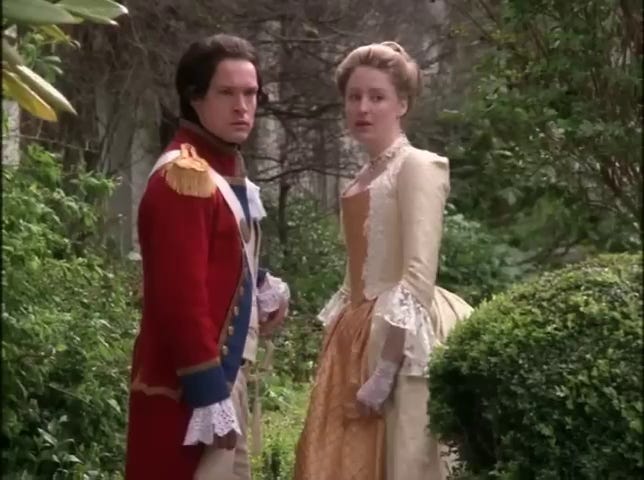
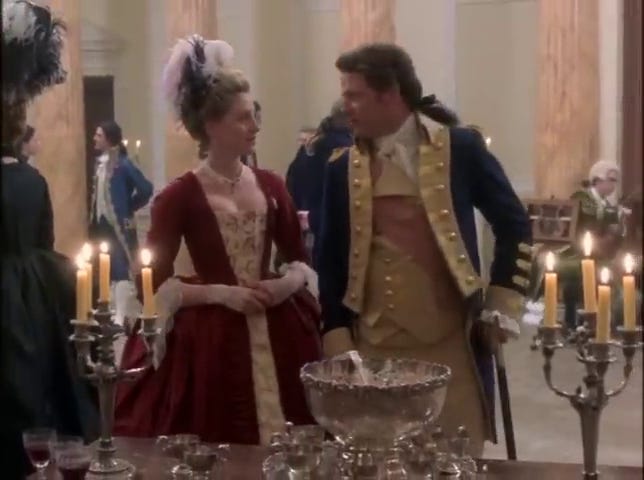
Some of Arnold’s chief motivations for treason, such as his being passed up for promotion and feeling he was cheated out of credit for the victory at Saratoga, the success being misattributed to the General whom Arnold derisively refers to as “Granny Gates” (Michael Grennell), and being court-martialed for profiteering. He also has a mob besiege his house for marrying Shippen and even begins to think Washington has turned on him (which was not true).
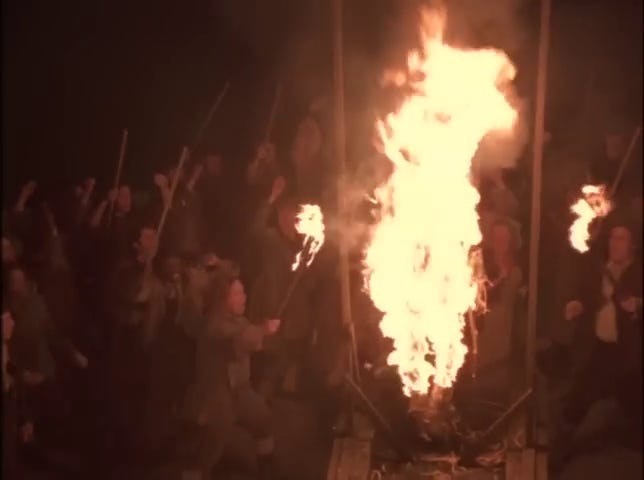
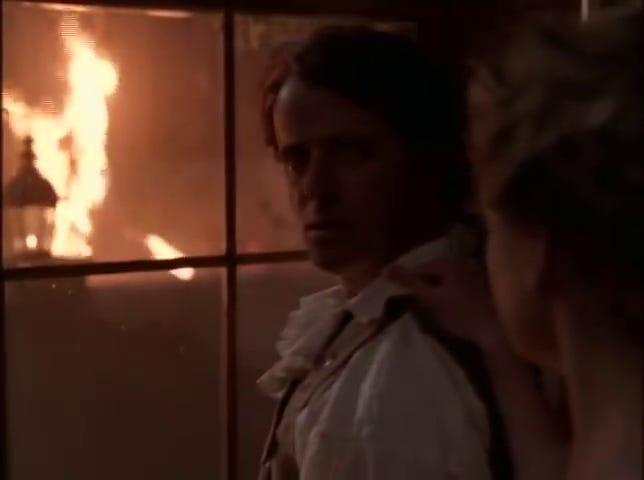
Arnold almost reconsiders his decision to defect to the British when Washington offers him a powerful command; Washington eventually gives him command of West Point military academy. Nevertheless, he does betray the Americans, attempting to surrender West Point over to the British before escaping aboard the HMS Vulture after his conspirator André, who is carrying incriminating papers, is captured (he would be hung as a spy shortly thereafter). George Washington is very disturbed by Arnold’s betrayal: “Arnold has betrayed me. Whom can we trust now?” Despite his almost turning West Point over to the British, however, Arnold discovers in the end that even in England he is regarded by many as a faithless turncoat.
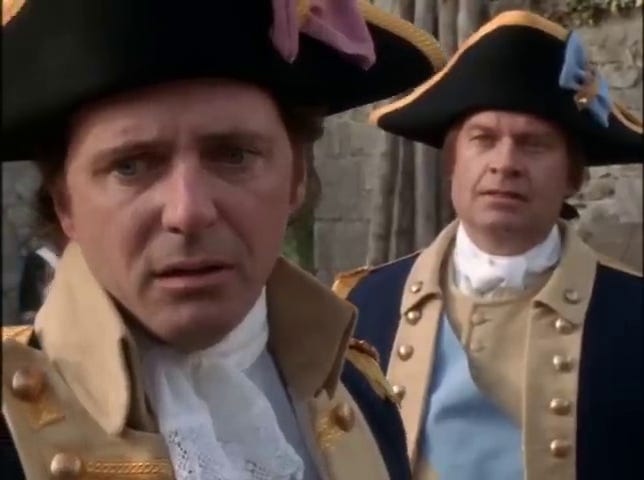

Arnold’s betrayal is a major early example of a recurring pattern in the espionage world. Double-agents from European countries are usually motivated by ideology, being true believers in the cause of their country’s enemy, such as the infamous Cambridge Five spy ring, comprising British government officials (including intelligence officers) who defected to the Soviet Union, believing Marxist-Leninism was the better political system. On the other side of the Cold War, Soviet spies such as Oleg Gordievsky, Dmitri Polyakov, (and possibly Oleg Penkovsky, whose motives are less known) were motivated by disillusionment with the brutality and repression of the USSR. Conversely, the major American double agents during the Cold War, CIA agent Aldrich Ames and FBI agent Robert Hanssen, were motivated entirely by monetary concerns. Arnold’s betrayal, spurred largely by personal grievances and a bruised ego, may not be quite the same, but Arnold did struggle with his finances, and his decision was based solely on his own interests, rather than any belief in King George III’s authority over the colonies (though his wife was truly loyal to the crown). Thus, Benedict Arnold broadly fits the pattern of American traitors usually being selfishly, rather than ideologically, motivated.
